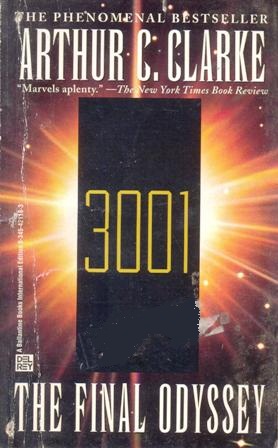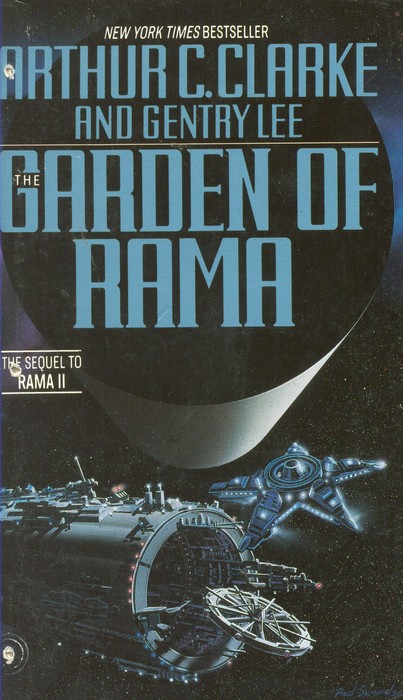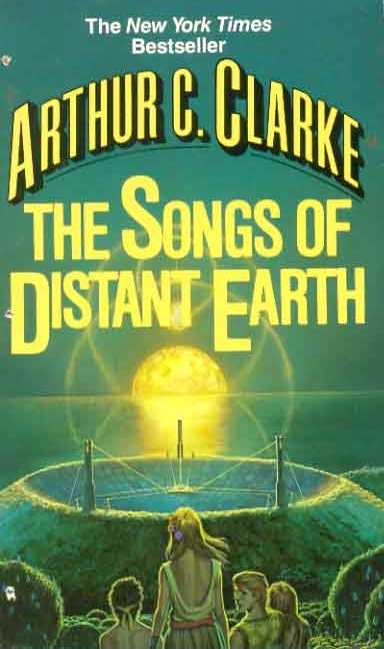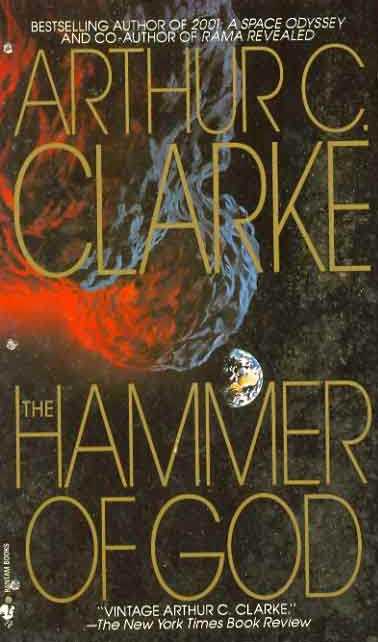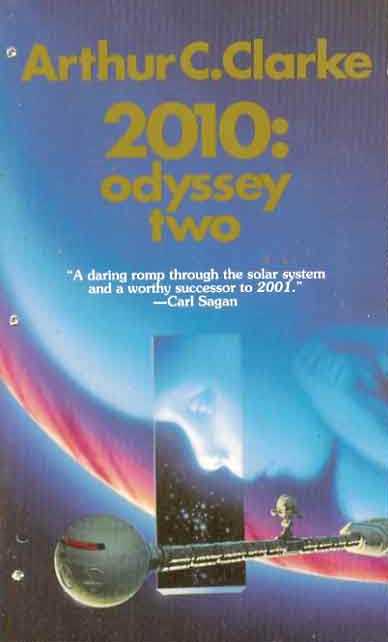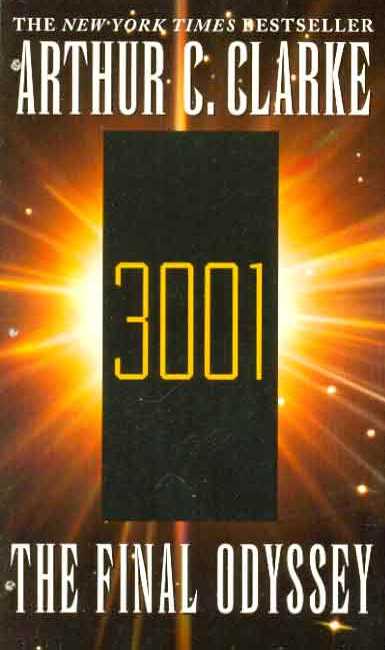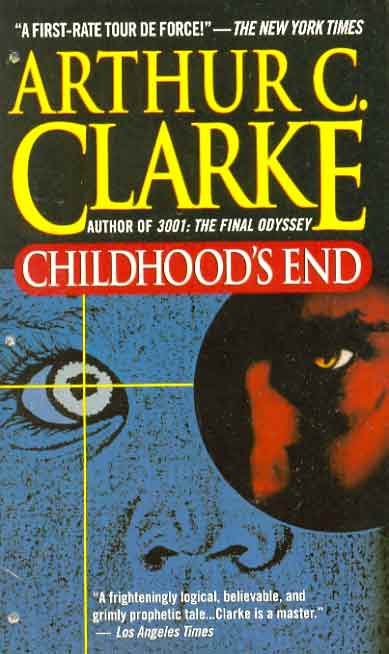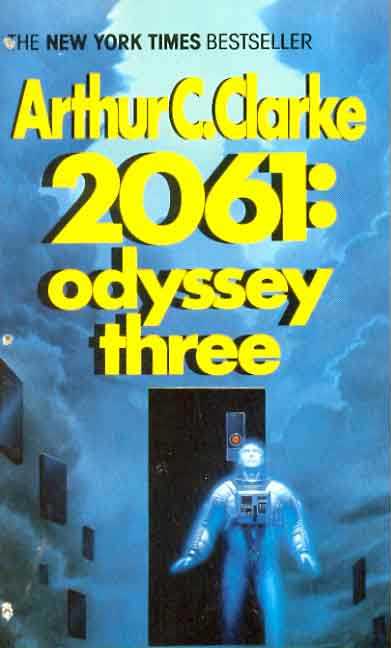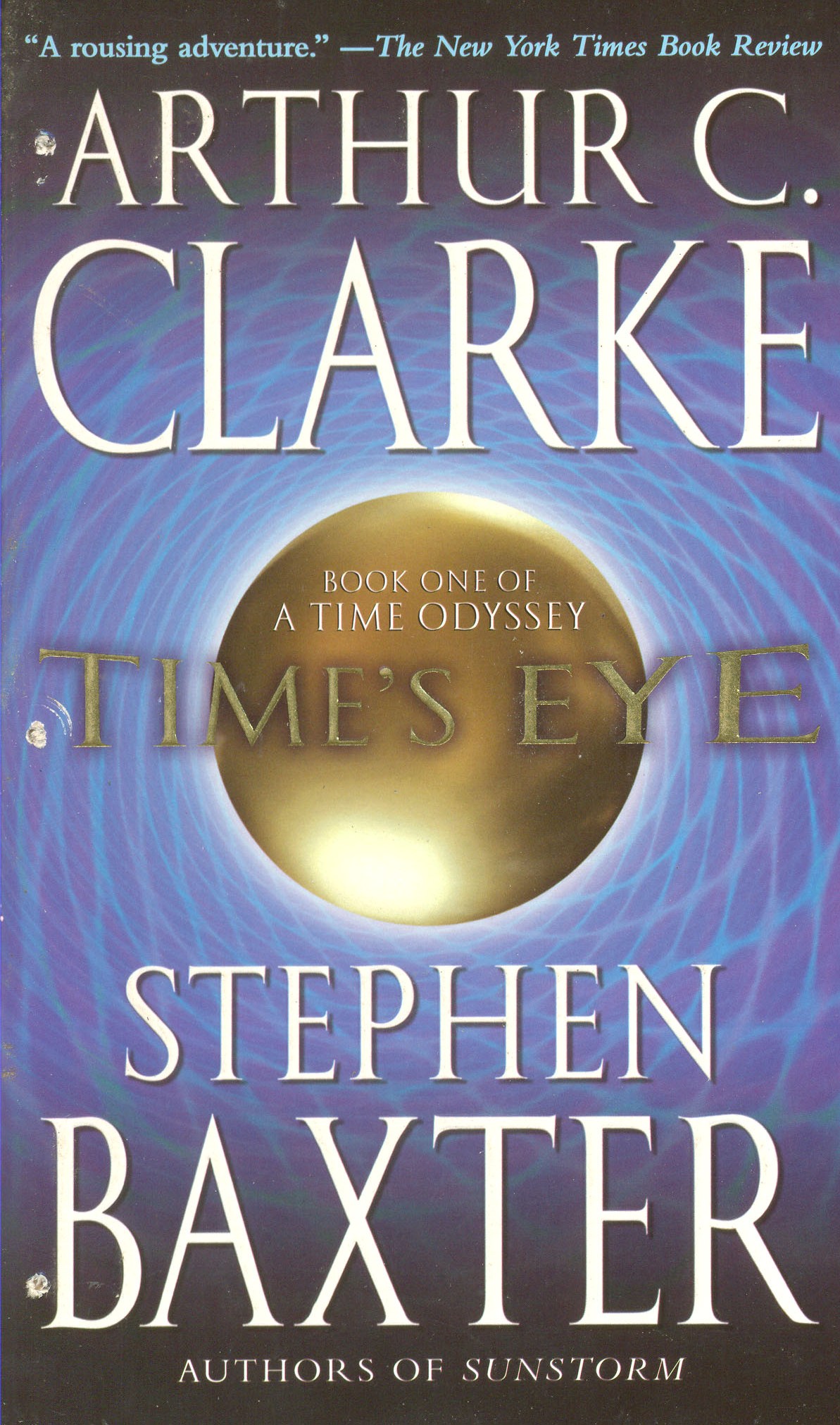-
The Garden of Rama
In the spellbinding Arthur C. Clarke tradition, here is an exhilarating adventure into the hearts of both the Universe and mankind...By the twenty-third century Earth has already had two encounters with massive, mysterious robotic spacecraft from beyond our solar system--the incontestable proof of an alien technology that far exceeds our own. Now three human cosmonauts are trapped aboard a labyrinthine Raman vessel, where it will take all of their physical and mental resources to surviv. Only twelve years into their journey do these intrepid travelers learn their destination and face their ultimate challenge: a rendevous with a Raman base--and the unseen architects of their galactic home. The cosmonauts have given up family, friends, and possessions to live a new kind of life. But the answers that await them at the Raman Node will require an even greater sacrifice--if humanity is indeed ready to learn the awe-inspiring truth.
-
The Songs Of Distant Earth
Just a few islands in a planetwide ocean, Thalassa was a veritable paradise-home to one of the small colonies founded centuries before by robot Mother Ships when the Sun had gone nova and mankind had fled Earth. Mesmerized by the beauty of Thalassa and overwhelmed by its vast resources, the colonists lived an idyllic existence, unaware of the monumental evolutionary event slowly taking place beneath their seas... Then the Magellan arrived in orbit carrying one million refugees from the last, mad days on Earth. And suddenly uncertainty and change had come to the placid paradise that was Thalassa.
-
The Hammer of God
In the year 2110 technology has cured most of our worries. But even as humankind enters a new golden age, an amateur astronomer points his telescope at just the right corner of the night sky and sees disaster hurtling toward Earth: a chunk of rock that could annihilate civilization. While a few fanatics welcome the apocalyptic destruction as a sign from God, the greatest scientific minds of Earth desperately search for a way to avoid the inevitable. On board the starship Goliath Captain Robert Singh and his crew must race against time to redirect the meteor form its deadly collision course. Suddenly they find themselves on the most important mission in human history--a mission whose success may require the ultimate sacrifice.
-
2010: odyssey two
When 2001: A Space Odyssey first shocked, amazed and delighted millions in the late 1960s the novel was quickly recognized as a classic. Since then, its fame has grown steadily among the multitudes who have read the novel or seen the film based on it. Yet, along with almost universal acclaim, a host of questions has grown more insistent through the years. Who or what transformed Dave Bowman into the Star Child? What purpose by behind the transformation? What would become of the Star Child? What alien purpose lay behind the monoliths on the Moon and out in space? What could drive HAL, a stable intelligent computer, to kill the crew? Was HAL really insane? What happened to HAL and the spaceship Discovery after Dave Bowman disappeared? Would there be a sequel? Now all those question and many more have been answered in this stunning sequel to his international bestseller, Clarke has written what will truly be one of the great books of the 80's Cosmic in sweep eloquent in its depiction of Maris place in the Univer se. and filled with the romance of space this novel is a monumental achievement.
-
The Final Odyssey
One thousand years after the Jupiter mission to explore the mysterious Monolith had been destroyed, after Dave Bowman was transformed into the Star Child, Frank Poole drifted in space, frozen and forgotten, leaving the supercomputer HAL inoperable. But now Poole has returned to life, awakening in a world far different from the one he left behind--and just as the Monolith may be stirring once again. . . .
-
Childhood's End
The Overlords appeared suddenly over every city--intellectually, technologically, and militarily superior to humankind. Benevolent, they made few demands: unify earth, eliminate poverty, and end war. With little rebellion, humankind agreed, and a golden age began. But at what cost? With the advent of peace, man ceases to strive for creative greatness, and a malaise settles over the human race. To those who resist, it becomes evident that the Overlords have an agenda of their own. As civilization approaches the crossroads, will the Overlords spell the end for humankind . . . or the beginning?
-
2061: odyssey three
Only rarely does a novelist weave a tapestry so compelling that it captures the imagination of the entire world. But that is precisely what Arthur C. clarke accomplished with 2001: a space odyssey.It is even more unusual that an author is able to complement so well-received an invention with an equally successful sequel. But Arthur C. Clarke`s 2010: odyssey two enthralled a huge audience worldwide.Now. in 2061: odyssey three. Arthur C. Clarke revisits the most famous future ever imagined. as two expeditions into space are inextricably tangled by human necessity and the immutable laws of physics. And Heywood floyd. Survivor of two previous encounters with the mysterious monoliths. Must once again confront Dave Bowman-or whatever Bowman has become-a newly independent HAL, and the power of an alien race that has decided Mankind is to play a part in the evolution of the galaxy whether it wishes to or not.
-
Time's Eye
In an instant, Earth is carved up and reassembled like a huge jigsaw puzzle. Suddenly the planet and every living thing on it no longer exist in a single timeline. Instead, the world becomes a patchwork of eras, from prehistory to 2037, each with its own indigenous inhabitants. Scattered across the planet are floating silver orbs impervious to all weapons and impossible to communicate with. Are these technologically advanced devices responsible for creating and sustaining the rifts in time? Are they cameras through which inscrutable alien eyes are watching? Or are they something stranger and more terrifying still? The answer may lie in the ancient city of Babylon, where two groups of refugees from 2037—three cosmonauts returning to Earth from the International Space Station, and three United Nations peacekeepers on a mission in Afghanistan—have detected radio signals: the only such signals on the planet, apart from their own. The peacekeepers find allies in nineteenth-century British troops and in the armies of Alexander the Great. The astronauts, crash-landed in the steppes of Asia, join forces with the Mongol horde led by Genghis Khan. The two sides set out for Babylon, each determined to win the race for knowledge . . . and the power that lies within. Yet the real power is beyond human control, perhaps even human understanding. As two great armies face off before the gates of Babylon, it watches, waiting. . . .

